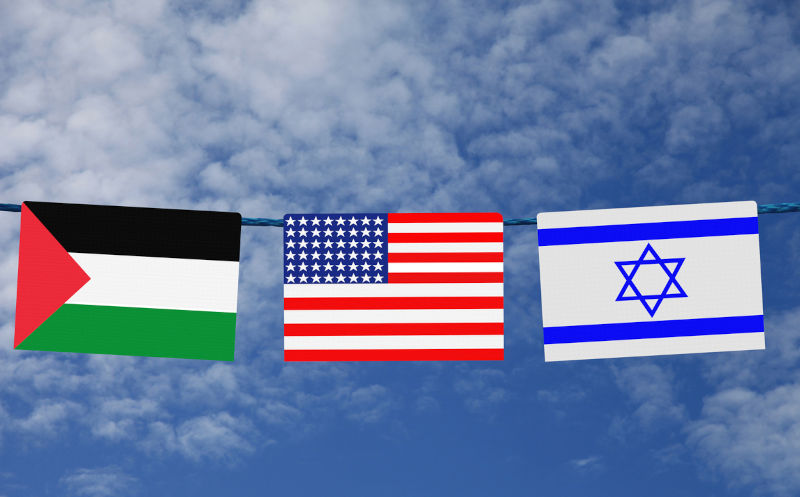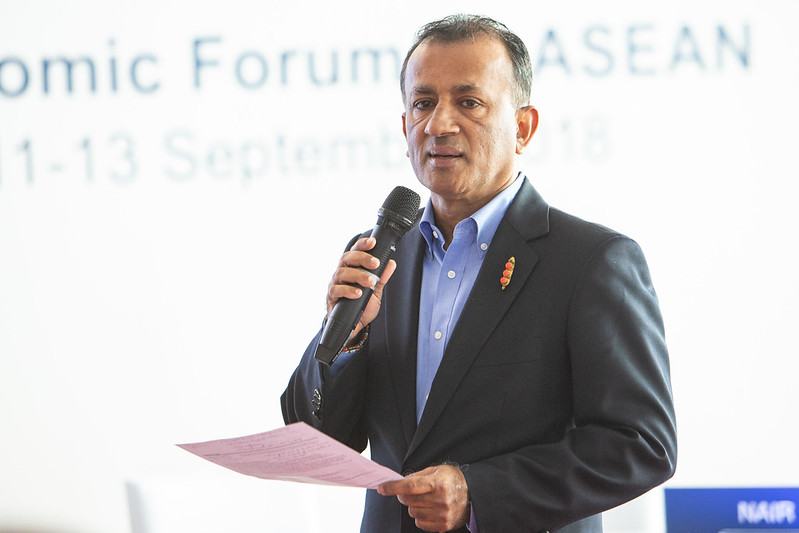US must curb Israels revenge instinct, end Palestinian suffering by wielding its power for peace
October 24, 2023
The world is appalled that the US has backed a war of vengeance by Israel on the captive Palestinian population. A US-led global peace process is critical to ending decades of violence in the Israel-Gaza conflict.
It is hard to know what else to say about the awfulconflictthat is playing out in the Middle East. Hundreds of articles have been written by commentators from both sides of the ideological divide.
What we know, however, is that it did not start on October 7, 2023; that there can be no winners; that it will not end if Gaza is razed to the ground; and that it has the potential to make the world an even more dangerous place.
It puts into perspective all that loose talk in the last year by irresponsible politicians in the West about a war inTaiwan. A region and an issue they have little understanding of, and about which they should not be inciting war. Perhaps the tragic events in theMiddle Eastwill remind them in case theUkraine wardid not provide enough evidence that there are only losers in all wars, and winning is in fact a losers game. Think also of Iraq and Afghanistan.
History is replete with examples that show how occupation and repression of local indigenous populations are always met with resistance.
Nelson Mandelafamously led a movement that ended a century of murder, oppression and plunder of black South Africans. Mahatma Gandhi led a movement that ended two centuries of plunder, forced starvation and crimes against humanity inIndia.
It is this lived experience of large-scale repression of an entire people that enabled Nelson Mandela to authoritatively utter those famous words: Our freedom is incomplete without the freedom of the Palestinians. Anyone who has not felt the pain, humiliation and depravation of such long-term and persistent cruelties is in no position to challenge the profound and nuanced meaning of that statement.
Yet most in mainstream media and within Western political circles who venture to speak about these critical issues are often wholly unqualified to comment accurately or fairly, given that many of these issues have roots in their colonial conquests including the current crisis. These are issues they can never fully understand or appreciate, trapped as they are in the shallow confines about the superiority of Western values.
Curb instinct for revenge
So, what was Mandelas point? What did he mean when he said to an audience in theUnited States, that one of the mistakes which some political analysts make is to think their enemies should be our enemies, and cited the Palestinian people, as well as those of Cuba and Russia, as friends of the oppressed black population of South Africa? He was stating views that any world leader should understand: the need to dismantle old divides and pave the way for new narratives based on coexistence.
Mandela had spades of moral authority in the world at that time, but his words still did not carry much weight. He did not have the economic and military power with which he could help shape the world.
Yet this is the exact moment when we need a global leader of his nature, with global economic and military power, to use economic power and influence to restrain the use of military power to seek revenge. We were in a similar position 20 years ago after September 11 with the invasion ofIraqand the occupation ofAfghanistan. The search for vengeance led to catastrophic outcomes more than 4.5 million deaths, according to Brown University and there were no winners.
The response we are seeing in todays conflict to shed blood and punish an enemy assuming it will result in better outcomes is the height of recklessness.
US leadership needed
So, which power is in a position of power and influence to help change the trajectory of the Israel-Gaza conflict? Simply put, it is the US and its president. Even if the US is widely recognised as part of the problem, it is the only global power that can stop the conflict from escalating further, given its decades-long entanglement in the region, its special relationship with Israel and its power.
For now, the US president and his advisers seem cognitively unable to do anything more than react in the same way the nation did 20 years ago after September 11 support a brutal war of punishment and what amounts to ethnic cleansing of an occupied and repressed population.
This is the moment to step away from the past and the constraints of current alliances. It needs lucid leadership. Make history and stop the cycle of violence. Demand a ceasefire and call for an immediate global conference led by theUnited Nations.
It will help the US in many ways, including starting the process of rehabilitating its tattered reputation.
There may not be any real data to prove it, but it is a reasonable guess that while most of the world rejects the type of violence committed by Hamas, they also understand the history of the conflict, and that Hamas is not alone in committing these crimes. After all, it is well-documented that the Israeli government and its American supporters are guilty of the same.
Given all of this, it is also safe to say that in a divided world, many empathise with the plight of the Palestinians, given they have been subject to decades of violence and repression. This is no different from the view the global majority took towards the apartheid regime inSouth Africa, despite the African National Congress being labelled a terrorist organisation by Western leaders and the Western press.
New era of peace
No matter the outcome of the current assault on Gaza, it is important to appreciate that the world at large is in many ways in shock that the West has so readily backed vengeance and war on a captive population.
The fact that the most powerful bloc of nations the US and its European allies are outrightly backing violence against a civilian population who live in an open-air prison is an indictment of the world we live in, and of the ideological and moral bankruptcy of the West. The responsibility of great power is to resist the temptation to exercise it simply because it is the easiest option.
Instead, that power should be used not to punish enemies of your friends but to draw on it to change the course of an ugly history. It should be used to protect the weak and those who are victims of acts of violence on all sides, and to work with all aggrieved parties to reverse the hatred and use that power to sow new seeds of coexistence. It is to lead despite provocation and to be agnostic to ideological alliances, especially when fully aware of the dire consequences of full-scale war, and the possibility of a regional or even world war.
So, can the US call upon the great nations of the world all five members of the UN Security Council, India, Brazil, the European Union and the African Union leaving aside all differences and convene a 21st century summit of peace? This has been done before, even if it took the large-scale death and destruction following World War II. Lets not wait for such an exacting toll this time to come to our senses.
First published in the South China Morning Post October 21, 2023

